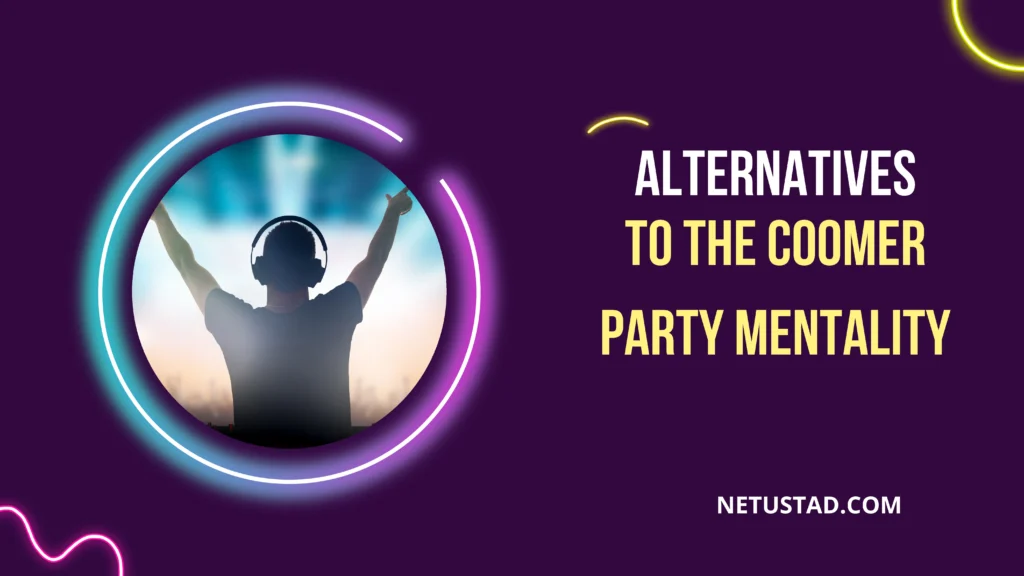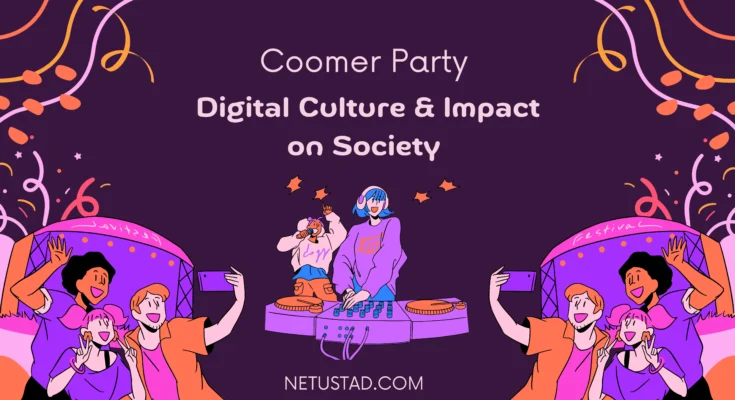In the depths of the digital age, a phenomenon known as the “coomer party” has emerged, captivating and concerning individuals worldwide. This subculture revolves around the excessive consumption of explicit content, often leading to compulsive behaviors and a disconnection from reality. As we delve into this intriguing topic, it’s essential to understand the coomer party’s origins, its impact on society and relationships, and the potential mental health risks associated with it.
What is the Coomer Party?
The coomer party is a digital subculture where individuals immerse themselves in a constant cycle of seeking instant gratification through various forms of adult entertainment. Participants indulge in explicit content, chat rooms, and forums, often neglecting real-world connections and responsibilities. This behavior is fueled by the ease of access to explicit material online, blurring the lines between fantasy and reality. The coomer party lifestyle prioritizes short-term pleasure over long-term fulfillment. It encourages excessive consumption of explicit content and virtual interactions.
The Rise of the Coomer Party Culture
In recent years, the coomer party culture has seen a steady rise, particularly among individuals seeking escape from reality and immediate pleasure. This phenomenon, fueled by social media platforms and the accessibility of online content, has transformed into a lifestyle for many. The allure of quick fixes and endless stimulation has lured people into a cycle of compulsive behavior centered around self-indulgence.
- The normalization of constant engagement in this party-centric lifestyle can lead to detrimental consequences.
- The rise of the coomer party culture is closely linked to the proliferation of technology and social media platforms.
Impact on Society and Relationships
The coomer party culture’s impact on society and relationships is profound. As individuals become consumed by the pursuit of instant gratification, real-world connections often suffer. Social interactions become superficial, replaced by virtual validation seeking, leading to a decrease in genuine human connection and empathy.
In relationships, the focus on self-gratification can create distance between partners. Intimacy may suffer as one or both parties prioritize online indulgence over emotional connection. Trust issues can arise when secrecy surrounds excessive participation in these activities.
- The coomer party mentality can erode traditional values and social norms.
- It can lead to a lack of genuine human connection and empathy in society.
Mental Health Concerns and Addiction
The coomer party culture, with its emphasis on instant gratification and excessive consumption of adult content, can have detrimental effects on mental health. Constant exposure to unrealistic standards and hypersexualized imagery can lead to feelings of inadequacy, anxiety, and depression.
Individuals may find themselves trapped in a cycle of seeking out more extreme content to chase the same high, leading to addiction. This addictive behavior can disrupt daily life, relationships, and overall well-being.
- Spending excessive time consuming explicit material online can desensitize individuals to real-life intimacy and connection.
- The disconnection from authentic human interaction can exacerbate feelings of loneliness and isolation.
How to Break Free from the Coomer Party Lifestyle?
Breaking free from the coomer party lifestyle requires conscious effort and a willingness to prioritize personal growth and well-being. Start by setting boundaries for yourself, limiting screen time, and prioritizing real-life connections over virtual ones.
Engage in activities that bring you joy and fulfillment outside of the online world. Seek support from friends, family, or a therapist if needed. Opening up about your struggles can provide valuable insights and support on how to move forward.
- Challenge yourself to explore different interests and passions that don’t revolve around internet consumption.
- Rediscover old hobbies or try something completely out of your comfort zone.
Alternatives to the Coomer Party Mentality
If you’re tired of the shallow and fleeting satisfaction that comes with the coomer party mentality, it’s time to explore alternatives that can bring true fulfillment and meaning into your life.
Disconnect from the virtual world and reconnect with nature. Spending time outdoors can provide a much-needed break from screens and distractions. Focus on building genuine relationships with friends and family, nurturing these bonds that will enrich your life in ways social media never could.
- Meditate, practice mindfulness, or engage in yoga to cultivate inner peace and self-awareness.
- Seek out opportunities for personal growth and learning, embracing continuous improvement.
By embracing these alternatives to the coomer party mentality, you open yourself up to richer experiences and deeper connections. Choose fulfillment over fleeting thrills – it’s worth it!

Conclusions
The coomer party phenomenon has sparked debates and raised questions about modern habits and their impact on individuals and society. It’s crucial for each person to reflect on their own behaviors and choices in light of these discussions.
While the coomer party culture may offer temporary thrills, embracing alternatives that align with healthier perspectives on relationships, self-care, and mental health can lead to positive changes over time. By prioritizing genuine connections, personal growth, and overall well-being, individuals can break free from the coomer party’s grip and cultivate a more fulfilling life.
Frequently Asked Questions
How has the coomer party culture impacted relationships?
The focus on self-gratification in it culture can create distance between partners, erode intimacy, and lead to trust issues.
What are some mental health concerns associated with the coomer party lifestyle?
Constant exposure to unrealistic standards and hypersexualized imagery can lead to feelings of inadequacy, anxiety, depression, and addiction.
How can someone break free from it lifestyle?
Setting boundaries, limiting screen time, seeking support, engaging in fulfilling activities, and exploring new interests can help break free from the coomer party lifestyle.
What are some alternatives of it mentality?
Alternatives include reconnecting with nature, building genuine relationships, practicing mindfulness, seeking personal growth, and embracing continuous learning.
Also read Cruciais: The Crucial Conversations



